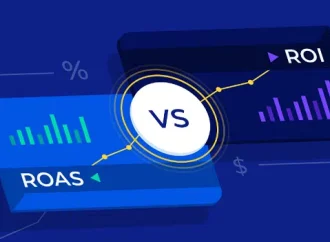Are you tired of sifting through countless health and fitness apps, trying to find one that suits your needs? With the abundance of options available on the market, it can be overwhelming to choose just one. Gone are the days where people relied solely on gym memberships and personal trainers for their health journey. Nowadays,
Are you tired of sifting through countless health and fitness apps, trying to find one that suits your needs? With the abundance of options available on the market, it can be overwhelming to choose just one. Gone are the days where people relied solely on gym memberships and personal trainers for their health journey. Nowadays, fitness apps have become popular tools for tracking progress and achieving goals. However, with all these new technologies come potential drawbacks as well. In this blog post, we’ll explore both sides of relying on fitness apps for your health journey so you can make an informed decision about whether they’re right for you!
The Pros of Fitness Apps
There are many benefits to using fitness apps, both as a way to stay motivated and track your progress, and as a way to maintain your health. In this article, we’ll discuss some of the pros of fitness apps, including their ability to motivate you, help you stay on track, and provide detailed information about your health.
First of all, fitness apps can be an excellent way to stay motivated. They often contain motivational messages or icons that remind you why you’re doing the exercises and how you’re progressing. This can be particularly useful if you find it difficult to stick to a regular exercise routine or if you find yourself getting bored with traditional training methods.
Fitness apps can also help you stay on track. Many include features that let you monitor your progress over time and compare your results against those of other users. This can help ensure that you’re making consistent progress and staying healthy.
Finally, fitness apps often offer detailed information about your health that is not available in other formats. This includes information about the types of exercises that are most effective for different parts of the body, as well as tips on how to improve your overall health and fitness level.
The Cons of Fitness Apps
There are many pros and cons to using fitness apps. On the positive side, they can offer great motivation and help keep you on track when starting or continuing a physical activity routine. However, there are also some potential drawbacks to utilizing these types of apps. First and foremost is that fitness apps can be addictive, which can lead to overspending or neglecting other important aspects of your health. They can also be inaccurate and may not provide the full spectrum of exercise necessary for achieving optimal results. In addition, fitness apps may not be suitable for everyone – particularly if you have mobility limitations or are pregnant – so it’s important to consult with a doctor before starting any new physical activity regimen.
Conclusion
A health journey is a personal one and as such what works for one person might not work for another. That said, there are a few fitness apps that have managed to stick with me throughout my journey, regardless of whether they have been directly responsible for helping me reach my fitness goals or not. These apps are MyFitnessPal, RunKeeper and Strava. They all provide different pieces of the puzzle and each has its own set of pros and cons. Ultimately it’s up to you to decide which app will work best for you on your health journey.





















Leave a Comment
Your email address will not be published. Required fields are marked with *